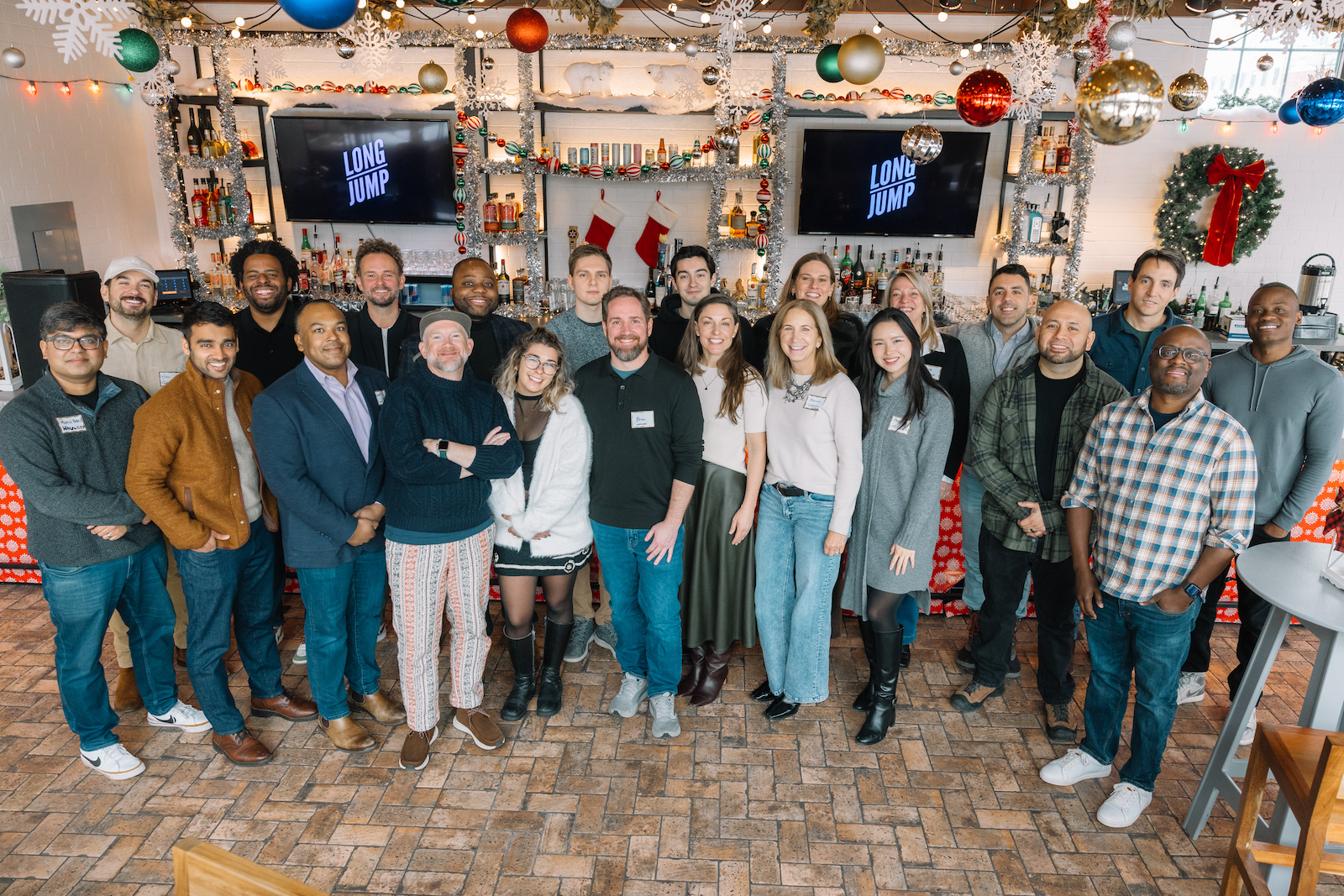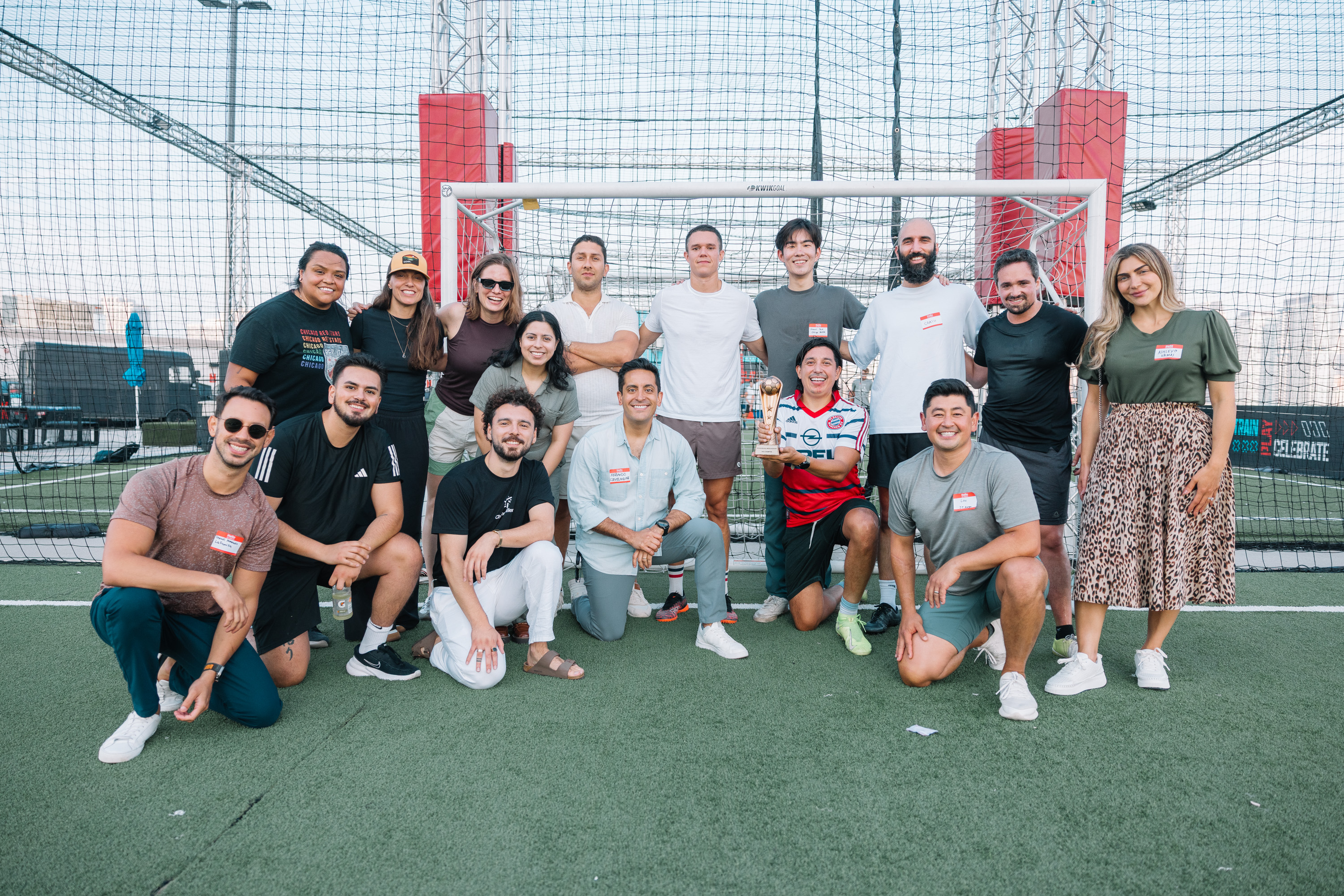Don't Miss a Step. Subscribe to our Newsletter
OrdrSmart, founded by Prarthana Gupta in early 2022, was initially focused on solving an inventory management challenge for beverage manufacturers (think: breweries and wineries). Coming from a background in product management at Wayfair, Prarthana had experience and interest in supply chains and was ready to apply that expertise to an industry she was passionate about.
Many customer discovery interviews, a pilot, and a Techstars program later, OrdrSmart is solving a completely different problem in the food/beverage supply chain than that which they first set out to address. The journey to this pivot, which included immediate idea invalidation, eventual revenue-generating traction on their MVP, and a face-the-facts moment on what they could actually build now and scale to something big, includes vital lessons for any early-stage founding team and demonstrates exactly why LongJump believed in Prarthana and her co-founder Shubham Goenka early in their company’s history.
The Genesis of the Idea… and Immediate Invalidation
Prarthana started as a solo entrepreneur, focusing on creating inventory management software for beverage manufacturers. Inspired by her visits to vineyards and breweries, she witnessed poor inventory management practices that had to be affecting profitability.
Before diving into the development of a software solution, Prarthana pulled on her product management experience at Wayfair and set out to interview individuals experiencing the perceived inventory problem. Prioritizing segments of Chicago with high concentrations of bars breweries, and restaurants, Prarthana set out knocking on as many doors as she could each day to talk to anyone willing to listen about inventory management.
“Finding an accessible customer segment was part of what I was trying to do - if I didn’t have access to a customer, then I was never going to be able to build what I wanted to,” she says. This is a key part of building at the early stage - breaking through and being able to have conversations with those people experiencing your theorized problem and may eventually end up as your initial customers must be prioritized. Many founders have what could be a great idea, but if they are unable to access their customers for informal interviews, they’ll likely be unable to eventually sell.
It took only a month of these conversations for Prarthana to reach her first pivot. From her interviews, it was clear that no one really cared about inventory management, even if they were experiencing challenges with it, it simply wasn’t a big enough pain point to build a company around. However, she stumbled upon a new problem: these interviews revealed significant challenges in sourcing and procuring the ingredients used to make end products.
Testing the Idea and Learning the Problem through a Manual MVP

In order to validate OrdrSmart’s new direction, Prarthana created a very basic landing page offering to help businesses source ingredients. To her surprise, it caught fire immediately. One of her customer discovery subjects was an early customer and word-of-mouth started to drive inbound requests with absolutely no marketing spend. She spent four months essentially acting as a procurement consultant, taking the hassle of finding ingredient suppliers off the backs of her clients and being paid to learn the bottlenecks of the business and make connections that would be key for launching a tech-enabled product.
Through repeat interactions and analyzing the needs of their customers, Prarthana realized the potential to build a platform that could replace their manual procurement process and OrdrSmart’s focus shifted to developing a marketplace that would enable manufacturers to efficiently source and procure ingredients for their products.
Honing In On What to Build

Having lived the problem of procurement for her clients, Prarthana identified three key problems with the process:
- Difficulty in discovering ingredient suppliers
- Lack of digitization, particularly in the catalog and payment processes
- Information sharing about the raw ingredients and materials necessary to be included in a final produced good
All three of these bottlenecks circled around a key area: the industry lagged in digitalization. The OrdrSmart team set out to tackle this initially through a marketplace, but as they made headway in development, they realized building out a full marketplace would take a lot of capital to do well and it needed a lot of time to validate. Searching for an area to streamline their product direction, they started to hone in on building a demo-able alpha around a single problem she had experienced multiple times: ingredient sampling. It was around this time that OrdrSmart was accepted into the Techstars Farm to Fork program, an experience that ended up proving pivotal in this new direction.
Centering the Techstars Experience Around a Pivot Point
Techstars provided a valuable opportunity for OrdrSmart to concentrate on their new product direction, refining the idea and business model. While many companies enter Techstars programs with goals around venture readiness, OrdrSmart was laser-focused on pulling on the Techstars Farm-to-Fork network, built specifically to help food/beverage-oriented businesses like hers, to gain deeper insights into the challenges faced by manufacturers in the industry.
“In Mentor Madness, we were told to take investors’ opinions on product solutions/direction with a grain of salt and focus more on industry insiders. These conversations solidified it: let’s stop worrying about the marketplace and focus on sampling. We took this back to the manufacturers we had already been doing customer discovery on and approached a whole new set of customers that Techstars had given us access to,” Prarthana says.
With a rene focus, they decided to prioritize providing the necessary digital tools to manufacturers, enabling them to sell their products more efficiently in various channels. Their new platform direction allows manufacturers to sell their products on any marketplace, on their own websites, and even at trade shows. By simplifying the sampling and information-sharing processes, OrdrSmart sits at the forefront of a manufacturer’s digitization journey, enabling them to reach a wider audience and streamline their operations.

Measuring Success of a Pivot
It’s important for all teams to set target metrics and KPIs from the outset around product development, financials, operations, and more. Prarthana states that the OrdrSmart team is keeping a close eye on customer conversions, successful pilots launched, and usage-based metrics such as the number of products and users on the platform, to provide insights into the effectiveness of their solution.
Prarthana states, “The pivot occurred because of customers, this is what they said they struggled with the most. The pivot will be successful when we see them actually act on what they said.”
Founders will often be told, “don’t boil the ocean”. Prarthana frequently reflects on a divergent/convergent approach to product development: identify those problems affecting a specific customer segment, look outside that segment to find broader applicability, then return to the original segment and solve. A startup, by nature, has limited time and resources to reach success and they can’t be everything to everyone. Narrowing focus in the initial stages doesn’t mean abandoning a larger vision, it simply allows for a solid foundation on which to grow. The sampling platform is just the beginning of the OrdrSmart team’s goals for how they can accelerate digitization for manufacturers across supply chains. By addressing a niche part of the industry that they believe they can tackle well early, they will develop relationships and an informed roadmap for future extensions of their platform.
Ready to Take The leAp?
Community
Contact
© 2025 | Site Built By PNW



.png)